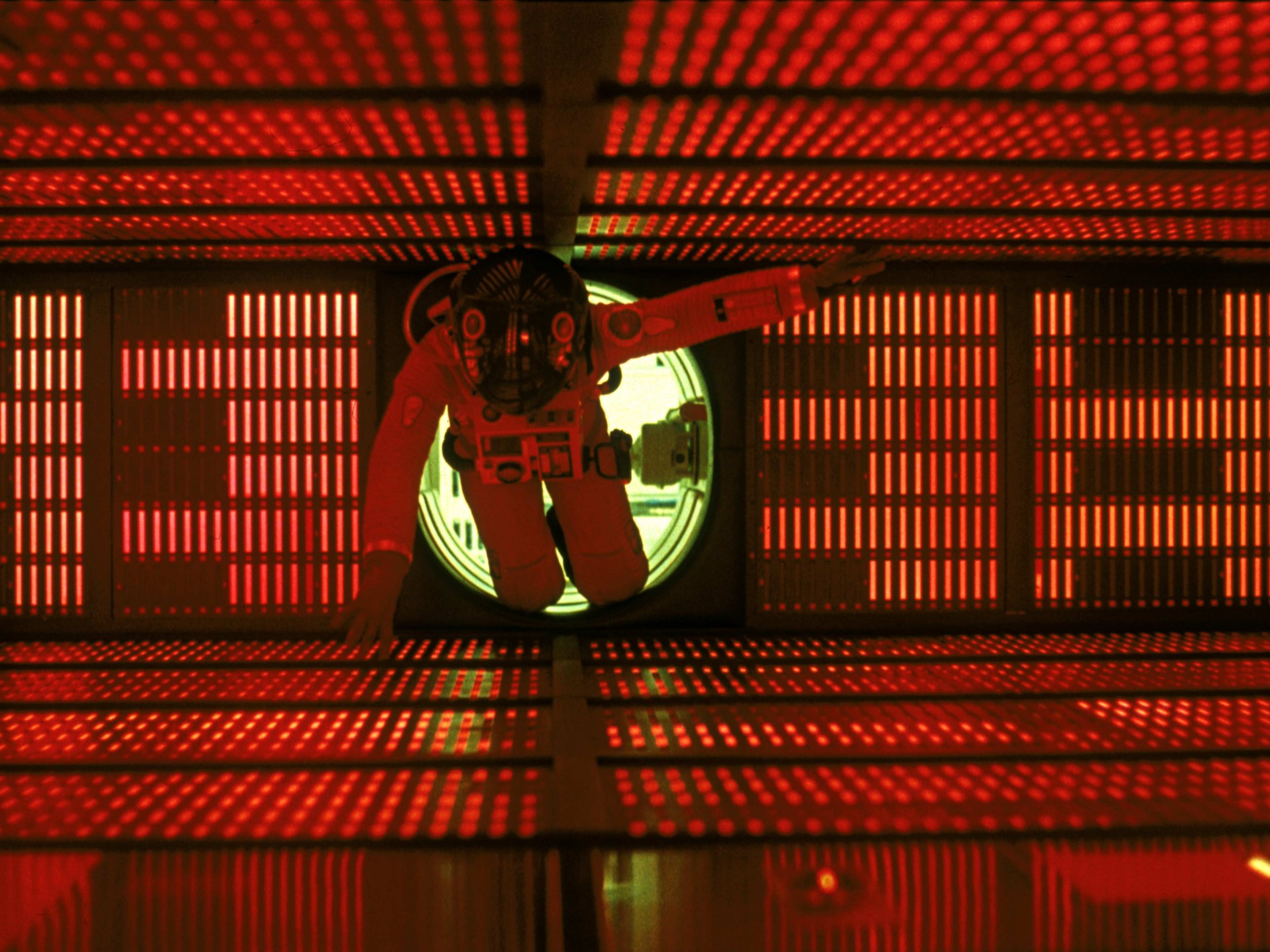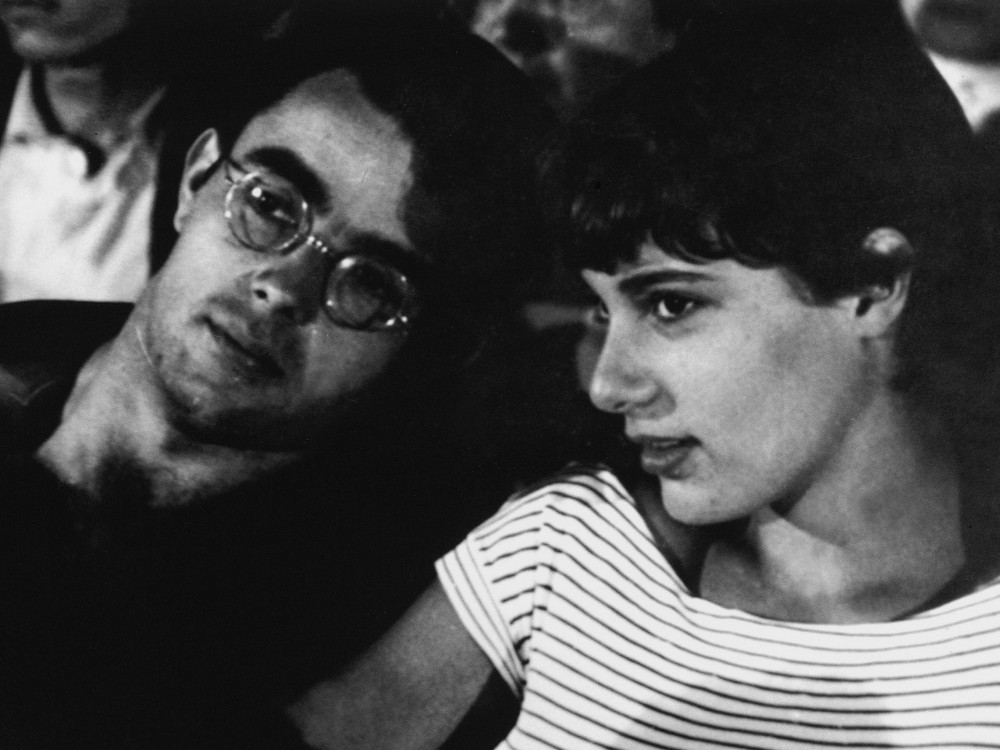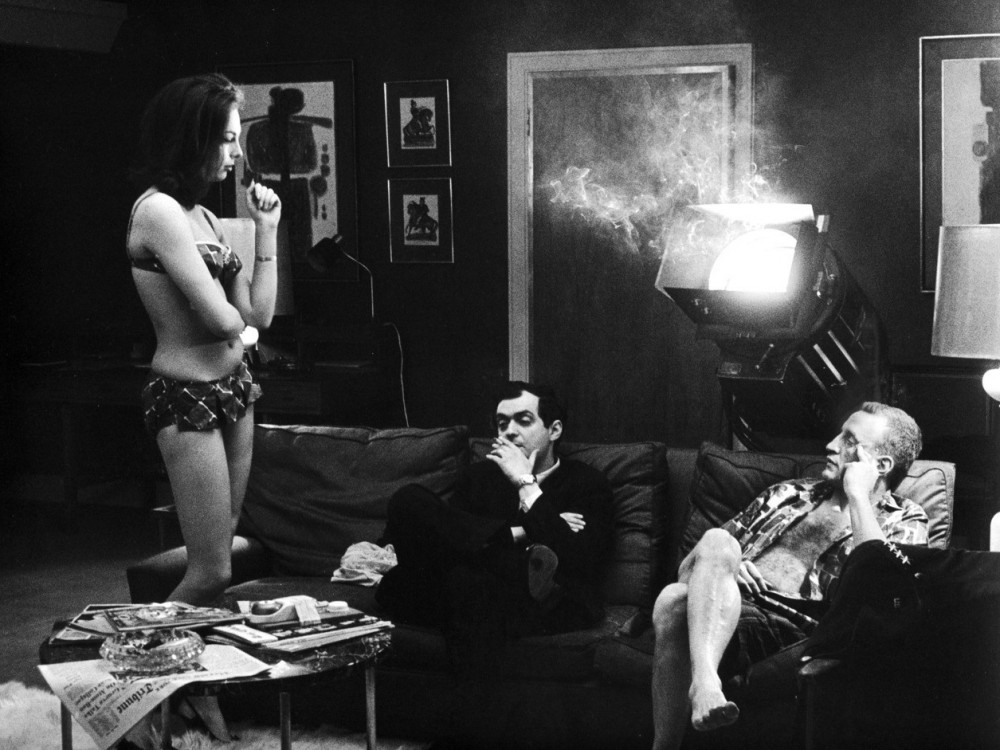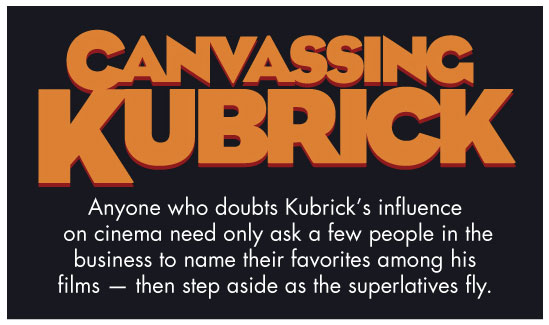
Randy Brown • screenwriter • Trouble with the Curve
“Stanley Kubrick had the rare ability to take familiar themes and characters and paint them fresh, as if seen for the first time. Full Metal Jacket is most powerful to me personally, for its 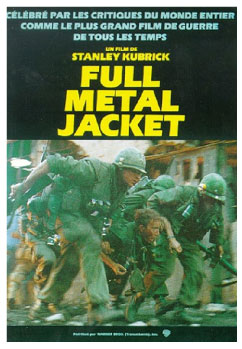 brutal depiction of the horror of war and loss of innocence. I’m amazed that one man could tell so many unique stories, seemingly to reinvent himself with each film.”
brutal depiction of the horror of war and loss of innocence. I’m amazed that one man could tell so many unique stories, seemingly to reinvent himself with each film.”
Guillaume Canet • writer-director-actor • Tell No One
“This is a difficult question but I would have to say that my favorite Kubrick film is The Shining. I first saw this film in an old country house with some friends. It really affected me. I remember being astounded by the style of directing. The writing and the dialogue amazed me. The actor performances were subtle, yet so intense. The film really affected me due in no small part to my friends banging on doors and walls throughout the night trying to freak me out — which they did. Since that night I have seen The Shining many times and appreciate it more and more. One can watch all of Stanley Kubrick’s films over and over again and notice something new and remarkable with each viewing.”
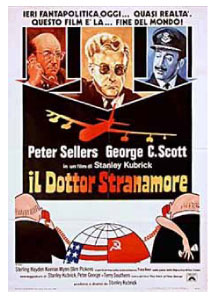
David Chase • writer-director • Not Fade Away
“Hardest question in the world to answer. Strangelove or Barry Lyndon? Barry Lyndon. Gets your emotions extremely disturbed. When he loses it and beats up his stepson and seals his fate. Makes you wonder: ‘Could this loss of control happen to anyone? Could this happen to me?’”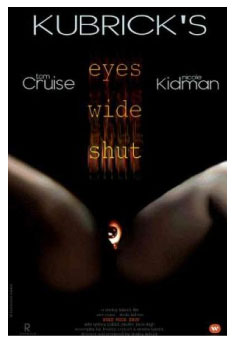
Neal Dodson • producer • Margin Call
“I remember going to see Eyes Wide Shut on its opening day, July 16, 1999. I was in between my junior and senior years of college in Pittsburgh, Pennsylvania. It was an extremely muggy day, and the air conditioning in the Squirrel Hill movie theatre was a relief. I was attending the movie more as a Tom Cruise fan than as a Kubrick fan, believe it or not. I loved Kubrick, particularly Lolita and Full Metal Jacket. But I was a die-hard ’80s/’90s Tom Cruise fan. So there I was.
What Kubrick did with Cruise and Nicole Kidman in the film was a revelation. Both shocking in the appropriately lurid voyeurism that pervaded the entire film, but also in what it revealed about them as actors and as a real couple. They seemed more honest and human together in that film than in any other setting, on-screen or off. It was achingly uncomfortable, but it was real. Somehow raw and ugly and hateful, yet still sexy. Among the many things in the film to love — the tension-filled scene with Sydney Pollack slowly playing billiards, Leelee Sobieski’s bizarre woman-child antics, the poisoned heartbreaker prostitute — the anonymous orgy in gothic masks takes the cake. Masked parties still have me feeling naked, hearing chanting music and wondering if I’m allowed in the club or about to be unmasked. And subtly, without resorting to George and Martha-style hysterics, Kubrick created some genuine cruelty between man and wife. In revisiting the film over the years, its flaws are certainly there. But no one matches the grandeur of what I think is the best jealousy movie ever made.
As I walked home after seeing the movie, I felt relieved and turned on. But mainly I felt uneasy and distrustful of my college sweetheart. Maybe distrustful of everyone for a few days. I suspect that’s just how Stanley wanted it.”
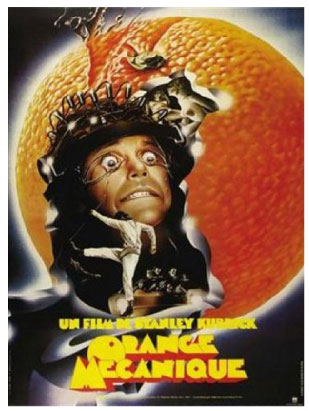
Atom Egoyan • director • The Sweet Hereafter
“I’ll never forget the sheer physical thrill of seeing Kubrick’s exquisite tracking shots in films like The Shining and A Clockwork Orange for the first time. Long before I became aware of how those shots were constructed, I remember the feeling they gave me. I was involved in the action in a way I had never experienced, and this had a lot to do with my initial excitement about filmmaking. I felt the distinct stamp of this great visual artist who was keenly aware of the power of cool artifice, and was able to harness that with fluidity and movement. The proscenium suddenly became alive. The effect was fascinating, smart and full of droll menace.”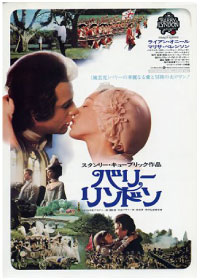
Jenna Elfman • actress • Damages
“Kubrick’s 1975 classic, Barry Lyndon. Ryan O’Neal at his absolute best…so gorgeous. He used no artificial light, all natural, totally epic and visually stunning. The soundtrack was so inspiring, I walked down the aisle to it at my wedding.”
Julian Farino • director • The Oranges
“A duel is a scene that is almost perfectly designed for cinema. Conflict, high stakes, pistols — a built-in tension that any scene would aspire to. Tailor-made, too, for the language of film — wide shot for geography, close-up for intensity, dialogue barely necessary.
Barry Lyndon begins and ends with duel scenes. The first, a brief, dispassionate event seen only in wide shot. The last, the culmination of enmity between two very different characters, Barry and Lord Bullingdon, played out at length and infused with character decisions based on events that led to it.
A love for Kubrick is based on the artistry, the vision. He has never been an emotional director, more just the ultimate master craftsman. These two duel scenes seem so perfectly judged in what they are doing; the first, covered by Michael Hordern’s sober narration, lets you know the story will be told at a distance, that it will have an objectivity. We don’t see the victim, nor a reaction. It’s presented as a fact. The last, playing out the last chapter of Barry’s fate, doesn’t have you hanging on the outcome in a typical climactic fashion, it’s more the logical end of the entire version of the story Kubrick has chosen to tell.It’s this insistence of vision that makes Barry Lyndon so satisfying. He’s so secure with the [unusual] form of telling the tale, that normal rules of storytelling can be ignored. It has a narrator that often tells us what is about to happen before we have seen it, and it has a stretched-out, even pace that is underscored by often repetitive, thematic music. But the film is stand-back in its conception and doesn’t want to rely on the inner feelings of its characters; it seems to be a bigger picture than that — a life, a fate. A lot of people describe Barry as a corrupt protagonist, and yet he starts as an innocent and only becomes self-seeking once set abroad in the world by fate, which is in turn his downfall. It’s a vision of the individual in the world as a general statement… The most moving scene of the movie is when young Bryan is on his deathbed, is not just the pain of an innocence destroyed, it feels like a mirror of Barry’s own destiny. Most people’s point of reference for Barry Lyndon is the cinematography, scenes lit just by candlelight. For me, the beauty of the movie — its hypnotic zooms, its frequent, static-camera formality — enhance the bigger-picture take; there is beauty amid the damnation. The melancholy of the score, its inevitability, the combination of lavish sets and costumes, the masks of makeup, are beauty hiding torment. Many scenes take place across gaming tables, Barry’s route to raising himself to be a gentleman — life as chance, the hand of fate, that ultimately we can’t cheat. And, as the postscript points out, once done, we are all equal anyway.”
Most people’s point of reference for Barry Lyndon is the cinematography, scenes lit just by candlelight. For me, the beauty of the movie — its hypnotic zooms, its frequent, static-camera formality — enhance the bigger-picture take; there is beauty amid the damnation. The melancholy of the score, its inevitability, the combination of lavish sets and costumes, the masks of makeup, are beauty hiding torment. Many scenes take place across gaming tables, Barry’s route to raising himself to be a gentleman — life as chance, the hand of fate, that ultimately we can’t cheat. And, as the postscript points out, once done, we are all equal anyway.”
Andy Fickman • director-producer • Parental Guidance
“My favorite film is A Clockwork Orange. Growing up as a lover of cinema, and having the opportunity to be enthralled and entertained by such diverse and magical visual treats as Spartacus, Lolita, Dr. Strangelove, 2001, Clockwork Orange, Barry Lyndon and The Shining, and to discover that they were all directed by the legendary genius Stanley Kubrick, inspired me as a director that there should be no boundaries to the types of stories we wish to tell.”
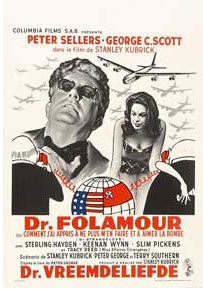
Nicholas Jarecki • screenwriter • Arbitrage
“When I was fifteen years old, my mother told me about some movies that I’d never seen — like A Clockwork Orange — which I really wasn’t so into. A Clockwork Orange? It sounded very boring. I finally popped in a VHS tape to tell her I’d humored her. And I remember watching, and the feeling that came over me — I was transfixed. All of a sudden I realized I’d been a total idiot, an ignorant fool. Here was a director operating on a completely different level than those I had been looking at. I had an immediate Kubrick jones — and watching his films transformed my thinking. I realized movies could promote a theater of ideas that were challenging and unrelenting about people’s conflicts, real conflicts, with themselves. I’ll never forget Sterling Hayden’s face at the end of The Killing — the complete desperation, and yet, a certain amusement at the inevitability of his tragedy. Watching Kubrick movies and their antiheroes had a real influence on what I became interested in, especially in making Arbitrage.”
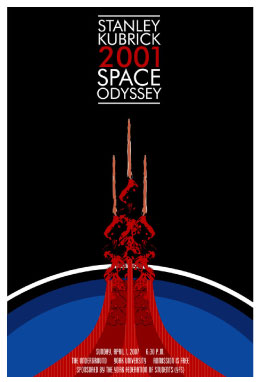
Nicholas Kazan • screenwriter • Reversal of Fortune
“Strangelove. One of the two greatest comedies of all time. Have you ever met a comedian? Almost all of them are deeply unhappy people. Why? Because they see tragedy and failure everywhere they turn…and it is this ability to see the truth and speak it that makes us laugh. All great comics — Chaplin, Keaton, Steve Martin — know that comedy is serious, that real laughter comes from facing The Horror. They want us to laugh so that they themselves do not have to cry. No film does this better than Strangelove, which takes the most serious of all subjects, one so grave we can hardly bear to contemplate it…and turns it into dark farce. We end up watching, almost rooting for, our own obliteration. And so an emotional effect is achieved which is natural to tragedy, but which most comedies can’t even aspire to: catharsis.”
Simon Kinberg • writer-producer • Sherlock Holmes
“2001 is one of my favorite films of all time. There are few films, if any, that express as much about the human condition, and do it with the coolest spacecraft ever.”
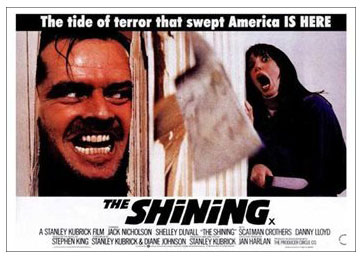
Domenick Lombardozzi actor • The Wire
“My favorite film is The Shining. Powerful performances by Jack Nicholson and Shelley Duvall. There are scenes that still creep me out: Danny riding his Big Wheel down the corridors, or the ax coming through the door. You never really knew what was going to happen. Simply put: Genius!”
David Lynch • director • Inland Empire
“My favorite film is Lolita. It’s a jewel from start to finish. All the performances are great, and James Mason and Peter Sellers are even beyond great.”
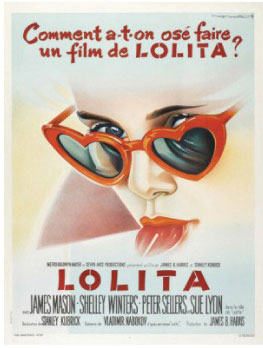
Matthew Modine • actor • The Dark Knight Rises
“Paths of Glory and Dr. Strangelove. I love these two equally. Hard to say why. Paths of Glory because of Kirk Douglas’ performance and the ignorance and arrogance of war Kubrick exposes. The same is true of Strangelove, but this time done with the most sardonic and ironic humor possible about nuclear annihilation.”
Aaron Paul • actor • Breaking Bad
“The first time I saw The Shining I was twelve years old, and I was alone. It forever changed the way I look at movies. What he did with this film and all of his other films was nothing short of brilliance. His long, breathless shots made me want to be a part of all of it.”
Alexander Payne • writer-director • The Descendants
“Barry Lyndon is my favorite of his films. Followed perhaps by Paths of Glory, perfect at eighty-eight minutes.”
Mike Sablone • co-producer • Promised Land
“Although my personal favorite Kubrick film will always be Dr. Strangelove — which introduced me to various perfect comedic styles in one amazing package — I recently had the good fortune of seeing 2001 at the Arclight Cinerama Dome — my first time seeing it on the big screen. It was as if I had never seen it before; 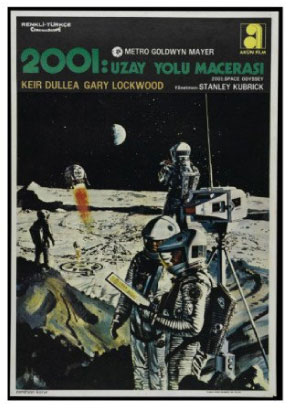 that’s how different the experience was. Everything about it was almost overwhelming, in the best possible way. Kubrick’s ambition, his visuals, the sound, the sparse but incredibly effective script, just everything about the craft of that film, coupled with me finally seeing it the way it should be seen — in a theatre full of people, at 11 o’clock at night — made it resonate so much more with me. The overall effect was one of a borderline religious experience, and one that I will treasure for years to come.”
that’s how different the experience was. Everything about it was almost overwhelming, in the best possible way. Kubrick’s ambition, his visuals, the sound, the sparse but incredibly effective script, just everything about the craft of that film, coupled with me finally seeing it the way it should be seen — in a theatre full of people, at 11 o’clock at night — made it resonate so much more with me. The overall effect was one of a borderline religious experience, and one that I will treasure for years to come.”
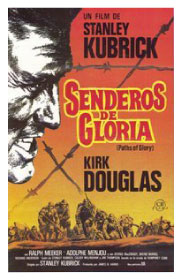
Yann Samuel • writer-director • The Great Ghost Rescue
“2001 was the first movie I saw in a theatre. I was five. The following day, my only obsession was to act like I was a great wheel in space, swirling and singing the ‘Blue Danube.’ Nothing else mattered. My teacher called my parents. She was really worried. But that day, I found something deeper than just a movie, I found the road to the first day of the rest of my life. Even though I couldn’t identify the reasons why. Put the blame on my parents, if I decided to become a scriptwriter and director. Taking a child to see a movie no one really fully understood, but so appealing that everyone wants to get a bite of it. Or, put the blame on mister Kubrick. For as I grew up, he kept on guiding me.
Since then, I usually need a 2001 shot in my life, and each time I see new layers in it: myth and mysticism; rhythm versus speed; confusion and link between modernity and classic culture; use of music and silence; untold layers of characters; big story through small ones; and such a high requirements in details… so many subtleties that I try to bring to my own work, like a studious pupil.Kubrick is like a lighthouse. His movies show how fast the seventh art found maturity compared to other expressions: painting, literature, music took centuries to become adults, when it only took less than sixty years to produce a genius like Stanley Kubrick. His work and talent defy time.The next highest moment in my life in the cinema industry, was at the Toronto Film Festival, when I read this review about my first movie: ‘Love Me If You Dare is like Breakfast at Tiffany’s if directed by Stanley Kubrick.’ Tears came to my eyes. The road was just beginning…”
Yaron Zilberman • writer-director • A Late Quartet
“Dr. Strangelove and 2001: A Space Odyssey are two back-to-back Kubrick meditations on the self-annihilation tendencies of humanity. The former as a satire about our obsession to create destructive power, and the infantile way we use it, irresponsibly risking life on earth, while the latter uses dramatic atmospheric abstractions of space, time, color and sound to depict a world where we end up handing over full control to the machines we design. Today, we can imagine a world where nuclear bombs are somewhat under control, but our growing dependency on technology, and our accelerated rush toward artificial intelligence doing everything for us, seems to lead faster than expected to creating a human-like computer that might one day tell us, at a point of no return, when we ask it to stop: ‘I’m sorry, XYZ…I’m afraid I can’t do that!’ Space Odyssey is my favorite Kubrick film.”
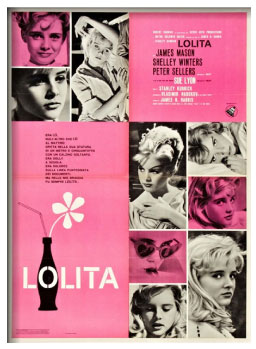
Kirsten “Kiwi” Smith • screenwriter • The House Bunny
“The Lolita poster was on everybody’s wall in the early ’90s, so Sue Lyon’s heart-shaped sunglasses led me to my first Kubrick movie: an ode to perverts that’s also shot through with girl power, resulting in one yummy-creepy half-masterpiece.”
Joe Carnahan • director • The Grey
“The film that most profoundly affected me was 2001, due in large part to my viewing it when I was far too young to truly appreciate it. It was only when I got into my late thirties that I started to understand the scale and audacity of what Kubrick was trying to convey in terms of foreshadowing the omnipresence of technology and its ultimate emotional corruption and ‘insanity’ as it succumbs to doubt and guilt and an all-too-human end. The disconnection of HAL, to me, remains one of the greatest murder scenes in the history of cinema.”
